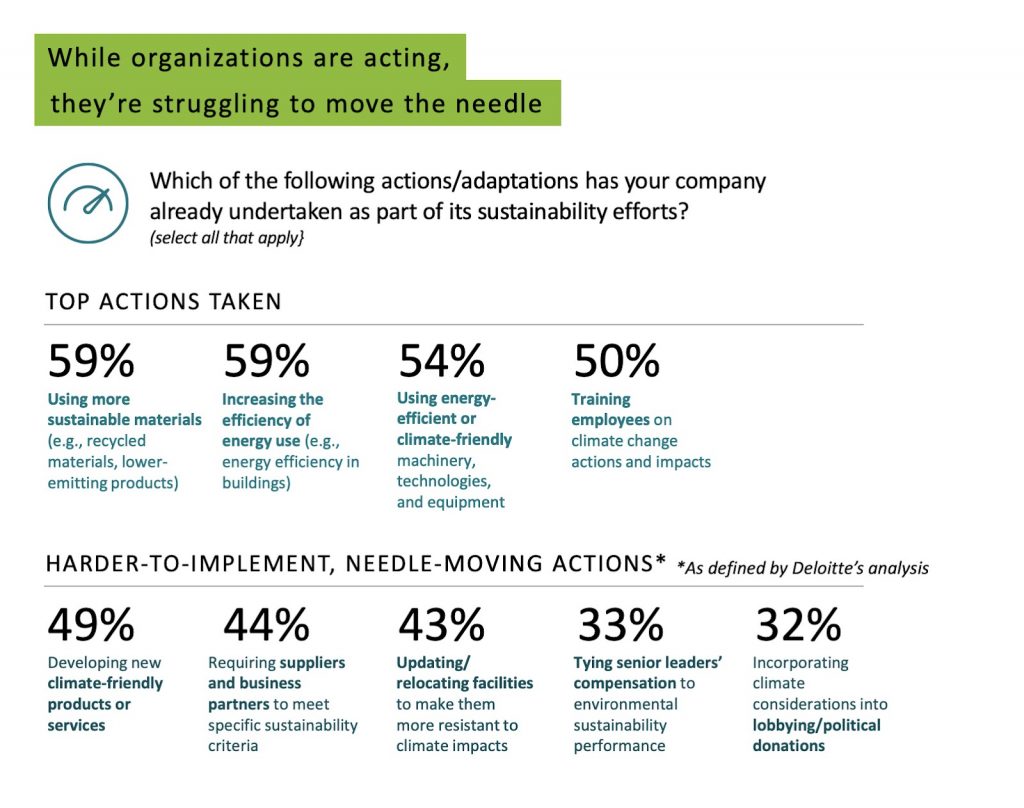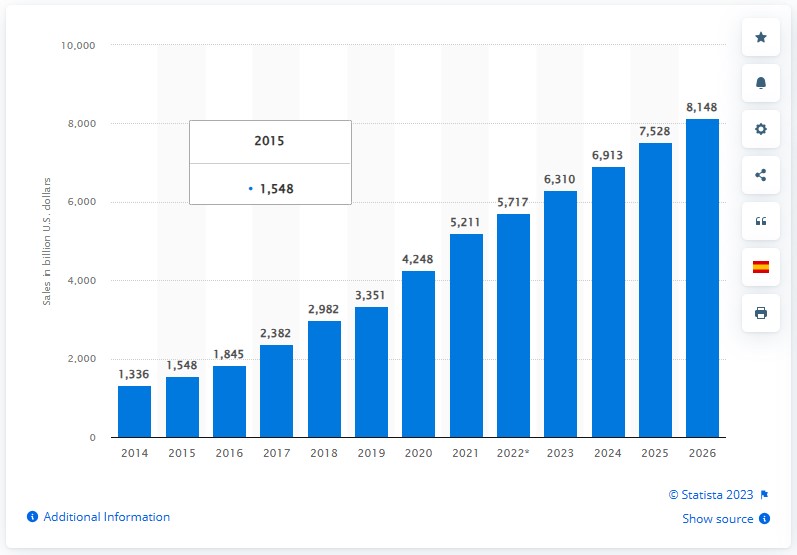
Nothing is more exciting and rewarding than graduating from college. However, are you ready for graduation this year? More importantly, are you prepared to enter the realm of employment and establish your career?
Fret not, as this page shares with you the job market trends to explore in 2025. As a fresh graduate, learn how to prepare yourself for the world of employment. Read on.
Job Market Trends To Consider in 2025
Surpassing the academic years is no easy feat. So, graduating from college is outright fulfilling and rewarding. This means you can already find a job, earn a living, and fulfill some of your dreams.
However, transitioning from college to work life isn’t easy—you have to consider a lot of things. On top of these is keeping up with the employment trends. That way, you can give yourself a competitive edge and make yourself employable.
That said, better heed our advice. As a fresh graduate, here are the job market trends to consider in 2025:
1. Focus on AI-related jobs
You cannot deny the rise of artificial intelligence— its global market potentially attaining a 15.83% compound annual growth rate (CAGR).
Think of AI as the Internet boom in the early 2000s—it’s absolutely the next big thing in the next few years to come. Consider ChatGPT and DALL-E (genAI), conversational chatbots (NLP), and data analytics (RPA) increasingly leveraged in business.
The rise of AI paves the way for new job opportunities, such as the following:
- AI Specialist – Craft and execute AI strategies tailored to business needs.
- AI/ML Developer – Build machine learning models for cutting-edge AI applications.
- Business Intelligence Analyst – Harness AI to turn raw data into smart, actionable insights.
- Data Analyst – Dive into data, uncover patterns, and guide decisions with evidence.
- NLP Developer – Teach computers to understand and generate human language seamlessly.
- Robotics Engineer – Design and optimize robots to streamline tasks and boost efficiency.
- XR Developer – Blend AI with virtual, augmented, and mixed realities for immersive experiences.
Max Tang, CMO at GEEKOM, recommends capitalizing on AI for career development. He cites that AI will change the business landscape in unimaginable ways.
Tang says, “AI is the next big wave, much like the internet boom of the early 2000s. With the market expanding rapidly, now’s the time to invest in AI-related roles. The growth potential is huge, and those who harness AI’s power will shape the future of business.”

2. Rise of the gig economy
The pandemic outbreak triggered the rise of the gig economy—worldwide freelancers or contractors working remotely and virtually. They work for businesses from around the world on a contractual or per-project basis—right in the comfort of their own homes.
The number of employees choosing remote work increased by nearly 25%, and those who chose the hybrid work setup grew by over 15%.
The rise of the gig economy has led to the work opportunities below:
- Digital skills: Think of online jobs, such as IT support, software design, and mobile app development. These jobs require tech-savvy professionals to tackle projects on demand.
- Creative jobs: For instance, content writing, graphic design, and web development empower freelancers to showcase their artistic talents. These creatives turn ideas into impactful visuals and messages.
- Business and marketing jobs: Consider e-commerce jobs, such as order processing, inventory management, and delivery tracking. Get marketing jobs like email outreach, social media management, SEO and PPC advertising,
Murtaza Oklu, owner of OMO Transfer, suggests joining the gig economy to achieve work-life balance. He claims that this industry is already changing and shaping the future of work and business.
Oklu explains, “The gig economy has reshaped how we work, offering professionals the flexibility to balance work and life while contributing to global projects. From digital and creative jobs to business and marketing opportunities, the demand for freelancers is skyrocketing, and this shift is here to stay.”
3. Emphasis on technical skills
The demand for technical skills is apparent in the workplace because of—workforce skills gap. According to Springboard, 70% of business leaders confront this problem, which is negatively impacting their business performance. Meanwhile, only 30% claim they don’t face this problem in their company or organization at all.
The same Springboard report cites the most in-demand hard skills today:
- Data analysis: Businesses handling vast amounts of data need experts to decode them. Data analysts enter the picture by uncovering insights that steer smart decisions.
- Project management: Juggling goals, deadlines, and resources is no walk in the office park. Enter skilled project managers—the glue that keeps teams aligned and projects on track!
- AI design: As mentioned, AI is reshaping everything. Knowing how to build or wield it is pure career gold. As industries lean into AI, this skill is your ticket to the future.
- Software development: In a tech-driven world, building sleek apps and tools isn’t just a job—it’s a superpower. Software developers craft the digital solutions everyone relies on.
- Cybersecurity: With hackers on the prowl, companies need digital bodyguards. Cybersecurity pros are the defenders, locking down systems and keeping data safe.
Conrad Wang, Managing Director at EnableU, emphasizes the need for technical skills in today’s digital landscape. He suggests investing in proper training and certification, aside from earning a relevant degree.
Conrad argues, “In today’s fast-evolving digital world, technical skills are non-negotiable. Businesses need experts to fill the gaps that are holding them back. Investing in the right training and certifications is crucial for staying competitive.”
4. Importance of soft skills
Maryanne Fiedler, Director of Marketing at Psychic Source, says, “While hard skills are in demand in business, soft skills remain relevant and vital in the workplace. They are essentially non-technical abilities that can impact day-to-day employee interactions, customer engagements, and overall business operations”.
The same Springboard report identifies some of the most important soft skills today:
- Communication skills entail exchanging messages with others clearly and smoothly, whether verbal or written. They also involve active listening, proper acknowledgments, and real empathy.
- Problem-solving skills require critical thinking—the ability to analyze complex ideas and make wise decisions. For example, think outside the box to solve complicated problems, either by automating tasks or streamlining processes.
- Emotional quotient (EQ) is “a set of skills that help us recognize, understand, and manage our own emotions as well as recognize, understand, and influence the emotions of others,” as defined by Harvard. Simply put, it’s managing emotions while relating well with others.
- Time management is about organizing your time to get things done efficiently and effectively. Practice time management techniques, such as the Eisenhower Matrix, Pomodoro Technique, time blocking, and Eat-that-frog rule.
- Leadership skills are about motivating and guiding team members to accomplish work towards shared goals—not just delegating tasks and taking control over them. However, only 40% of leaders rate their leadership as “very good” or “excellent,” so the search for great ones continues. That’s why real leaders are very much coveted in the workplace!
Adrian Lorga, Founder & President at Stairhopper Movers, highlights the value of soft skills in the workplace. He believes fresh graduates should develop and acquire the skill sets necessary to thrive in the workplace.
Lorga shares, “While technical expertise is essential, soft skills are the glue that holds teams and businesses together. Fresh graduates should prioritize developing soft skills like communication, problem-solving, and emotional intelligence to succeed in today’s dynamic workplace.”
5. Demand for green jobs
Sustainability—the practice of doing business without harming the planet—takes centerstage in business. The good news? About three-quarters of companies have increased their sustainability investments over the past few years. Take a peek at the numbers:
The call for sustainable business opens the doorways for green jobs:
- Business sustainability: Think of roles, such as sustainability consultants and energy managers. They help companies go green, cutting waste while staying compliant.
- Energy management: Consider jobs like HVAC technicians and energy auditors. These professionals focus on improving energy efficiency in buildings and systems.
- Renewable energy: From solar panel installers to wind turbine technicians, these careers power the shift to clean, renewable energy sources. Capitalize on these roles!
- Green construction: Sustainable urban planners and eco-friendly architects design efficient, eco-conscious, and future-proof spaces. These roles are becoming increasingly popular in the construction industry!
David Speedy, General Manager at Workspace Direct, underscores the importance of business sustainability. He recommends considering new and emerging roles in this field.
Speedy mentions, “As sustainability becomes central to business, new green jobs are emerging that offer exciting career opportunities. Companies and organizations are looking for professionals to help them achieve their environmental goals and innovate for the future.”
6. Work evolution in different industries
Roman Zrazhevskiy, Founder & CEO at MIRA Safety, says, “Companies and organizations across different industries undergo a significant transformation. Rapid technological advancements, changing consumer behaviors, and evolving business trends trigger this transformation”.
This shift paves the way for new roles or jobs in various niches below:
- Retail: With e-commerce sales projected to grow from $5.2 trillion in 2021 to $8.1 trillion by 2026, businesses have started adopting AI and XR technologies. This demands roles, such as AI specialists and UX designers to enhance online shopping experiences.
- BFSI: Blockchain tech and cryptos like BTC and ETC transform finance with secure and transparent systems. Now, think of emerging jobs like blockchain developers, DeFi analysts, crypto compliance officers, and smart contract engineers.
- Manufacturing: Robotics and IoT power smart factories, optimizing processes through robotic process automation (RPA). Key roles to consider include robotics engineers, IoT specialists, RPA developers, and industrial data scientists.
- Healthcare: Telehealth, telemedicine, and remote patient monitoring (RPM) make healthcare more accessible, efficient, and patient-centric. Consider healthcare jobs, such as telehealth coordinators, remote monitoring technicians, health IT specialists, and digital health strategists.
Learn from Dr. Mo Ziaei, Cornea & Vision Correction Specialist at Re:Vision. He recommends studying industry trends to align careers with them for competitive advantage. This is all the more crucial for fresh graduates who are about to enter the labor workforce. Ziaei explains, “Industries are evolving rapidly, and so are the roles within them. Whether it’s AI in retail, blockchain in finance, or telehealth in healthcare, staying ahead of trends and adapting to new technologies is crucial for anyone looking to thrive in these emerging niches.”
How To Prepare Yourself for Employment
Now, you are familiar with the job market trends 2025 by heart. Understand, however, that keeping up with these trends is crucial for finding relevant work and succeeding in your career. So, how do you begin your career after graduation? Here’s how to prepare yourself for the world of employment:
- Study the job market trends. Consider the top trends outlined above: Are you looking to harness the power of AI, jump onto the gig economy bandwagon, or explore the latest innovations in the healthcare industry?
- Start looking for prospective jobs. Factor in your educational background—knowledge and skills, training experience and expertise, as well as your chosen profession or industry. With all these in mind, what jobs are readily available for you?
- Develop and acquire skillsets. As a graduating student, hone the top skills employers look for these days. Consider the abovementioned soft skills (communication, problem-solving, and EQ) and hard skills (data analysis, project management, and software development).
- Create a professional development plan (PDP). A PDP is simply your career roadmap—where you want to be and how to get there—for professional growth and success. It includes your professional goals, detailed plans, and actionable steps.
- Get training, certification, and licenses. These will help you become confident in job interviews, exams, and assessments and give you a competitive advantage in your job applications. Note: Job applicants get one interview call for every six applications submitted.
- Begin the art of professional networking. No employee is an island, even if you’re working from home. As soon as you graduate from college, start expanding your network. Establish good relationships with your colleagues and work with mentors and industry leaders. They all can help advance your career!
Final Words
For fresh graduates, the world of employment looks bright and promising. However, it also comes with uncertainties and apprehensions—not when you stay abreast with the employment trends in 2025! Consider the job market trends above—from the rise of AI, the gig economy, and business sustainability to the demands for soft and hard skills. Likewise, take into account niche-specific evolution in your industry or chosen profession. Lastly, follow our crucial steps for preparing yourself for employment. With all these in mind, you can set yourself up for professional growth and career success!
Are you graduating this year? Already preparing for employment? Hold on! Take time to shop for diploma and certificate frames—a symbol of academic success and future career success. Get in touch with us today to see how we can help!











